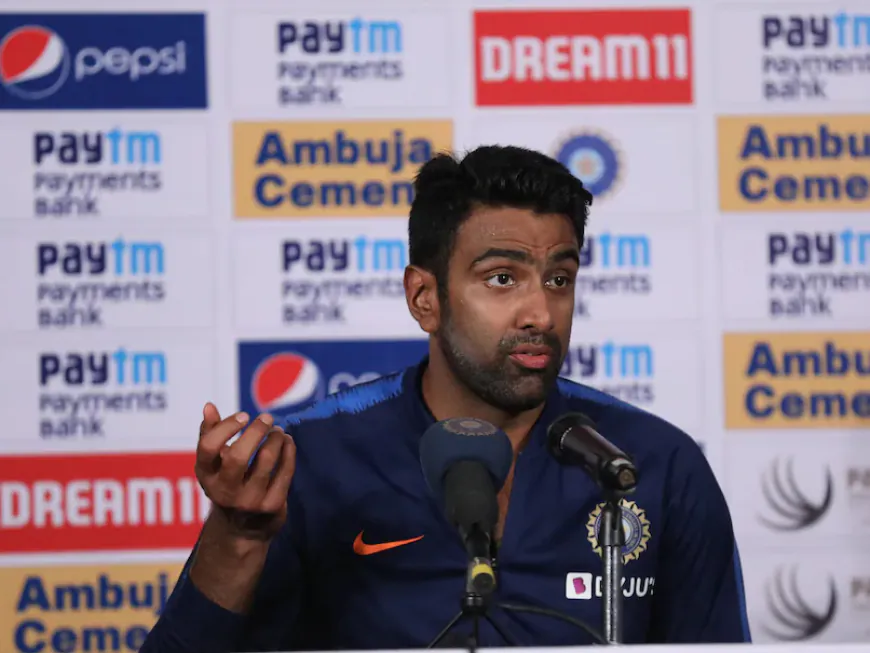Ravichandran Ashwin's Hindi Remarks Cause a Nationwide Debate
Ravichandran Ashwin's Hindi comments have become a nation-wide debate, which reflects most of the problems that occur due to language and communication in Indian cricket.

In a statement that has once again brought the language issue to the forefront of Indian politics and culture, cricketer Ravichandran Ashwin recently sparked a fresh debate by declaring that Hindi is "not our national language but an official language." The comments, made during a graduation ceremony at a private engineering college in Tamil Nadu, come at a time when the language divide between Hindi-speaking and non-Hindi-speaking states is an ongoing issue in India.
Ashwin has for long been known for his vocal views, and this discussion was with a group of students in which the topic of language came up. He light-heartedly got them responding with some simple questions. "English students in the house—give me a yay," he said, prompting an enthusiastic cheer. Then, he asked for a response from the Tamil-speaking students, who shouted in unison. However, when Ashwin put up the same question related to Hindi before the audience, it fell flat.
It is at this juncture that Ashwin went on to make his now-controversial statement, "Hindi is not our national language; it is an official language." The fact that his remarks were made in Tamil only reinforced the observation that Ashwin is indeed speaking from a position that is based on the linguistic preferences of his home state. His remarks may kindle a long-standing debate, especially in the state of Tamil Nadu, where language issues have almost always been a sensitive issue.
For many years now, Hindi imposition has been the point of disagreement, particularly concerning the southern states. Tamil Nadu's ruling party, DMK, has not shied away from blaming the central government several times for its actions in promoting a national language like Hindi at a time when people feel it forgets the diverse culture and tongues of the land. Ashwin's statement came at the correct time, reigniting the fire of language controversies in public view.
While Ashwin does indeed say simply what many seem to think--"India never spoke one voice," in his interview--it more accurately reflects, though, another bigger issue within the country concerning its multilingual identity. There are many speakers of Hindi with an official state language status all over India and also at a national level in India. However, the preference for local languages, particularly in the southern states, remains a source of tension, as many argue that Hindi’s imposition in government, education, and media leaves little room for regional languages.
Ashwin's statement has sparked mixed reactions. While his supporters believe that he is simply upholding the importance of linguistic diversity, others might see it as an unnecessary provocation. In the context of India's linguistic diversity, where multiple languages coexist, the matter of a "national language" is a complex and sensitive issue.
He talked about his language apart from discussing his personal life experiences and sharing views on leadership in the event. He was questioned regarding his opinions about Team India's captaincy. Ashwin, in this context, had given a balanced answer without providing direct opinions about the same. "When someone says I can't do it, I wake up to accomplish it, but if they say I can, I lose interest," he said while explaining his approach and mentality toward challenges.
Ashwin also used the platform to motivate the students by speaking about his journey and how the persistence of being good is needed. "If any engineering staff had told me that I couldn't become a captain, I would have worked harder," he said, "and if there is something in your mind which says you cannot do it, then you should work harder.".
He added that learning should never end, particularly for students. As Ashwin says, the moment one stops learning, they stop growing, and excellence becomes just a theoretical concept. His message to the students was clear: never give up, keep learning, and strive for greatness.
While the thrust of Ashwin's speech was on education, leadership, and self-improvement, the issue of language was perhaps the aspect with which most in the room could strongly connect. His remarks have again opened up the larger debate on the place of Hindi in India's linguistic landscape and how this issue continues to shape political discourse particularly in non-Hindi-speaking regions.
With the heated debate going on over the nation's language, Ashwin's words are a reminder of how deeply rooted in the very core are the cultural and linguistic complexities of India. It is also an indication of how public personalities like Ashwin influence conversation while talking about identity, culture, and politics in the country. Whether or not he intended this as a start of a bigger debate, certainly he has created it, and interestingly, it will be seen how it evolves in the days to come.



 admin
admin